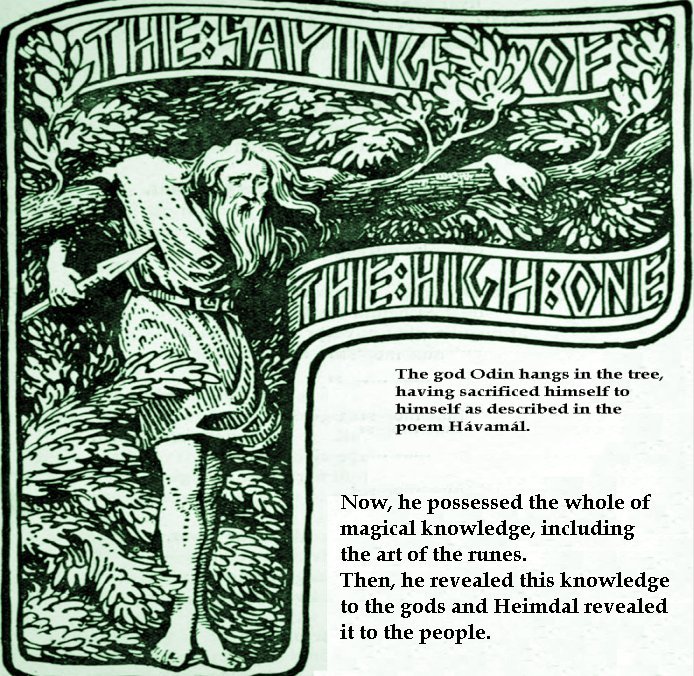God Of The Gallows And How Odin Hanged Himself From Yggdrasil To Know Secrets Of Runes
A. Sutherland - AncientPages.com - Odin is associated with war and death, humanity's knowledge of the runic alphabet, poetry, healing, and sorcery.
Odin was always seeking wisdom, even at great personal cost, and indeed, it wasn't easy because he had to pay a high price for these treasures.
For instance, Odin got the seid (seidr) gift from a Vanir goddess, Freya, who shared it with all the Aesir gods and goddesses, and Odin became the chief practitioner of this magic could see the future and influence the fate of others.
In his quest for wisdom, Odin sacrificed his eye in exchange for a drink from Mimir's well, but he did not limit himself only to Mimir's wise advice. His constant wandering in search of more knowledge continued because he wanted to possess much more.
Odin Sacrifices Himself To Gain Wisdom
While sitting one day on the throne of Asgard, Odin watched the Norns occupied with their work, dictating fate and shaping destiny with their runes (the earliest alphabet used by the Norse).
He was jealous of their powers, and he also wanted to possess this hidden knowledge that allowed the Norns to exert so much control over the world. And so, he decided that he would acquire the wisdom of the mysterious runes.
In "Havamal" (or 'Words of the High One'), which is one of the poems in the Codex Regius of the Elder Edda, it describes how to obtain the priceless runes, Odin voluntarily sacrificed himself on the Yggdrasil tree without bread and drink, until he died.
"…I know that I hung on a windy tree nine long nights, wounded with a spear, dedicated to Odin, myself to myself, on that tree of which no man knows from where its roots run.
No bread did they give me nor a drink from a horn, downwards I peered; I took up the runes, screaming I took them, then I fell back from there..."
Thus, in his never-ending search for wisdom and knowledge, Odin, once again, paid the highest price possible. He learned nine magic songs and eighteen highly powerful charms; with spells, he could heal emotional and physical wounds. The magic he learned made it possible for him to bind and defeat his enemies, making their weapons totally useless.
Armed with the knowledge of the many mysteries of the runes and their enormous power, Odin composed the following verse:
"….Then I was fertilized and became wise; I truly grew and thrived. From a word to a word I was led to a word, From a work to a work I was led to a work…" (as cited by Roy Jackson in "Viking: Viking Mythology: Ancient Myths, Gods and Warriors), who adds that the source of this poem is believed to be an Old Norse Poem, once part of the "Poetic Edda".
Now, he possessed the whole of magical knowledge, including the art of the runes and their unlimited power. It was a very meaningful sacrifice to Odin and one of his greatest experiences.
Then, he revealed this knowledge to the gods, and Heimdallr revealed much of these treasures to the people, but certainly not all of them.
What Does This Story Teach Us?
This is a beautiful story saying that to become great, gain power, and especially knowledge. We also have to sacrifice our time, energy, and health.
It's often a long-term process, but in the end, it is worth the effort.
The story also teaches us we can achieve many things in life, but in most cases, nothing that is worth something comes easy. We have to struggle and fight for the things we want in life.
Updated on January 21, 2024
Written by – A. Sutherland AncientPages.com Staff Writer
Copyright © AncientPages.com All rights reserved. This material may not be published, broadcast, rewritten or redistributed in whole or part without the express written permission of AncientPages.com
Expand for referencesReferences:
Crossley-Holland K. The Penguin Book of Norse Myths
Sturluson S. The Prose Edda
More From Ancient Pages
-
 Genes For Learning And Memory Are 650 Million Years Old – Study Shows
Evolution | Jul 19, 2023
Genes For Learning And Memory Are 650 Million Years Old – Study Shows
Evolution | Jul 19, 2023 -
 Bizarre Sound Of A Crash Remains An Unexplained Mystery
Featured Stories | Oct 22, 2020
Bizarre Sound Of A Crash Remains An Unexplained Mystery
Featured Stories | Oct 22, 2020 -
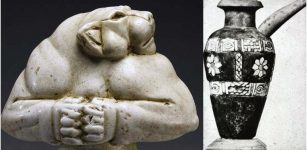 Mesopotamian City Jemdet Nasr Dated To 3100–2900 BC: Sophisticated Irrigation Techniques And Earliest Cylinder Seals
Featured Stories | Dec 18, 2016
Mesopotamian City Jemdet Nasr Dated To 3100–2900 BC: Sophisticated Irrigation Techniques And Earliest Cylinder Seals
Featured Stories | Dec 18, 2016 -
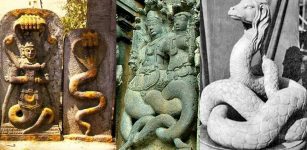 Mysterious Nagas: Serpent People Who Live In Secret Underground Cities
Featured Stories | Oct 24, 2017
Mysterious Nagas: Serpent People Who Live In Secret Underground Cities
Featured Stories | Oct 24, 2017 -
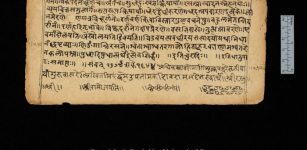 Ancient Grammatical Puzzle Solved After 2,500 Years
Linguistic Discoveries | Dec 15, 2022
Ancient Grammatical Puzzle Solved After 2,500 Years
Linguistic Discoveries | Dec 15, 2022 -
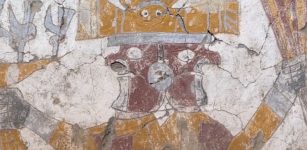 Ancient Murals Of Mysterious Two-Faced Beings And Supernatural Creatures At Pañamarca, Peru
Archaeology | Mar 21, 2023
Ancient Murals Of Mysterious Two-Faced Beings And Supernatural Creatures At Pañamarca, Peru
Archaeology | Mar 21, 2023 -
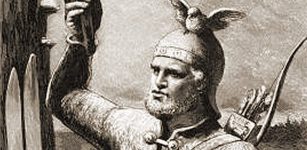 Ullr – Famous Norse Archer – God Of Asgard And Fastest Skier Ever Known Who Taught People The Art
Featured Stories | Jan 10, 2020
Ullr – Famous Norse Archer – God Of Asgard And Fastest Skier Ever Known Who Taught People The Art
Featured Stories | Jan 10, 2020 -
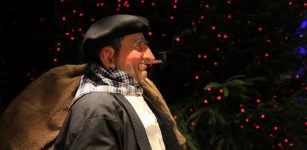 Beautiful Legend Of Giant Olentzero Who Brings Christmas Presents To Basque Children
Ancient Traditions And Customs | Dec 19, 2020
Beautiful Legend Of Giant Olentzero Who Brings Christmas Presents To Basque Children
Ancient Traditions And Customs | Dec 19, 2020 -
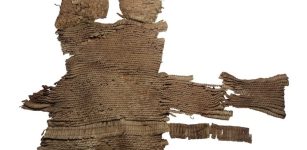 2,700 Year Old Equestrian Armor In Assyrian-Style Leather Evidence Of Technology Transfer In Antiquity
Archaeology | Dec 9, 2021
2,700 Year Old Equestrian Armor In Assyrian-Style Leather Evidence Of Technology Transfer In Antiquity
Archaeology | Dec 9, 2021 -
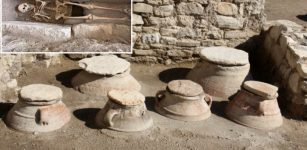 Kadıkalesi Castle Ancient Ruins: Female Skeleton Unearthed At An Archaeological Dig
Archaeology | Jan 9, 2023
Kadıkalesi Castle Ancient Ruins: Female Skeleton Unearthed At An Archaeological Dig
Archaeology | Jan 9, 2023 -
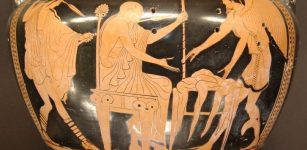 Prophet King Phineus Revealed The Future To Humans And Unleashed God Zeus’ Fury
Featured Stories | Nov 20, 2019
Prophet King Phineus Revealed The Future To Humans And Unleashed God Zeus’ Fury
Featured Stories | Nov 20, 2019 -
 Hidden Manuscripts Reveal Ancient Sacred Wisdom Of The Gods And Surprises
Artifacts | Mar 23, 2019
Hidden Manuscripts Reveal Ancient Sacred Wisdom Of The Gods And Surprises
Artifacts | Mar 23, 2019 -
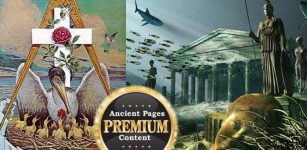 Rosicrucians’ Secret Knowledge Of Atlantis, Pyramids And Extraterrestrial Visitations
Civilizations | Apr 17, 2017
Rosicrucians’ Secret Knowledge Of Atlantis, Pyramids And Extraterrestrial Visitations
Civilizations | Apr 17, 2017 -
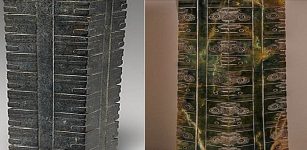 Mysterious Jade Cong – Perplexing Ancient Chinese Artifact
Featured Stories | Jan 3, 2023
Mysterious Jade Cong – Perplexing Ancient Chinese Artifact
Featured Stories | Jan 3, 2023 -
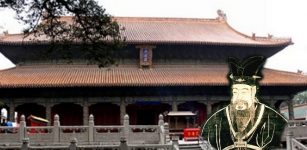 Confucius: Philosopher, Educationist And Great Intellect With A Noble Morality
Featured Stories | Jul 27, 2016
Confucius: Philosopher, Educationist And Great Intellect With A Noble Morality
Featured Stories | Jul 27, 2016 -
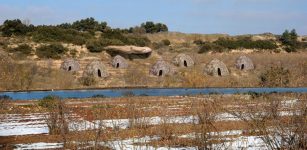 13,000-Year-Old Engraving May Depict First Paleolithic Social Group Of Humans
Archaeology | Dec 4, 2015
13,000-Year-Old Engraving May Depict First Paleolithic Social Group Of Humans
Archaeology | Dec 4, 2015 -
 The First Conservationists May Have Been Early Pacific Islanders Who Started The Practice 3,000 Years Ago
Archaeology | Sep 29, 2021
The First Conservationists May Have Been Early Pacific Islanders Who Started The Practice 3,000 Years Ago
Archaeology | Sep 29, 2021 -
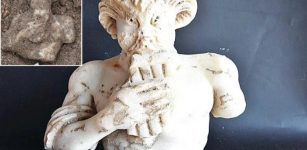 1,700-Year-Old Statue OF Greek God Pan Unearthed In Istanbul
Archaeology | Jun 9, 2023
1,700-Year-Old Statue OF Greek God Pan Unearthed In Istanbul
Archaeology | Jun 9, 2023 -
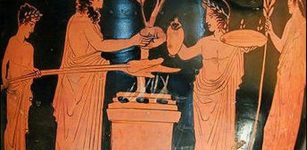 What Was The Role Of The Priests And Priestesses In Ancient Greece?
Ancient History Facts | Jul 27, 2016
What Was The Role Of The Priests And Priestesses In Ancient Greece?
Ancient History Facts | Jul 27, 2016 -
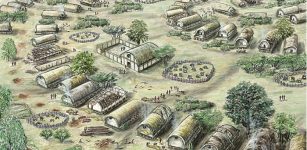 6,000 Years Ago, Europe’s Oldest Cities Relied On Fertilizer And Plant Protein, Isotope – Analysis Shows
Archaeology | Dec 19, 2023
6,000 Years Ago, Europe’s Oldest Cities Relied On Fertilizer And Plant Protein, Isotope – Analysis Shows
Archaeology | Dec 19, 2023


